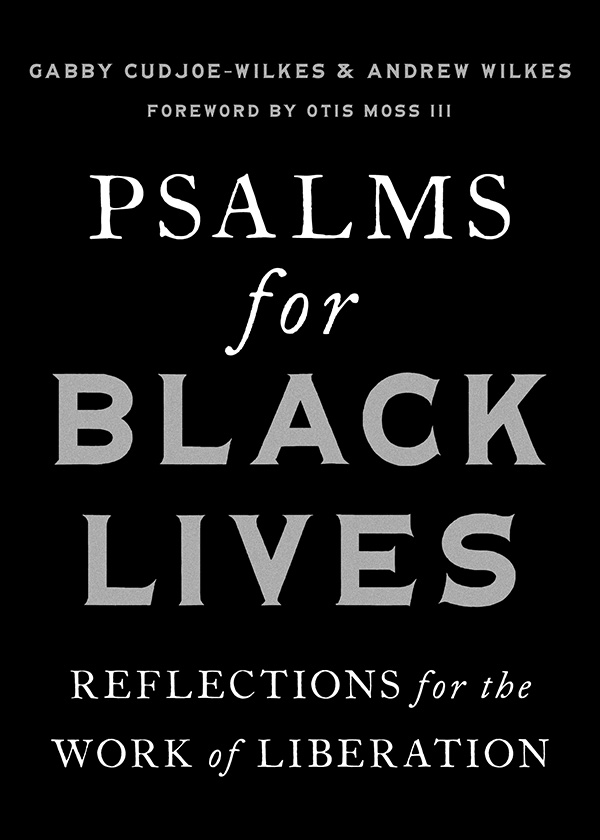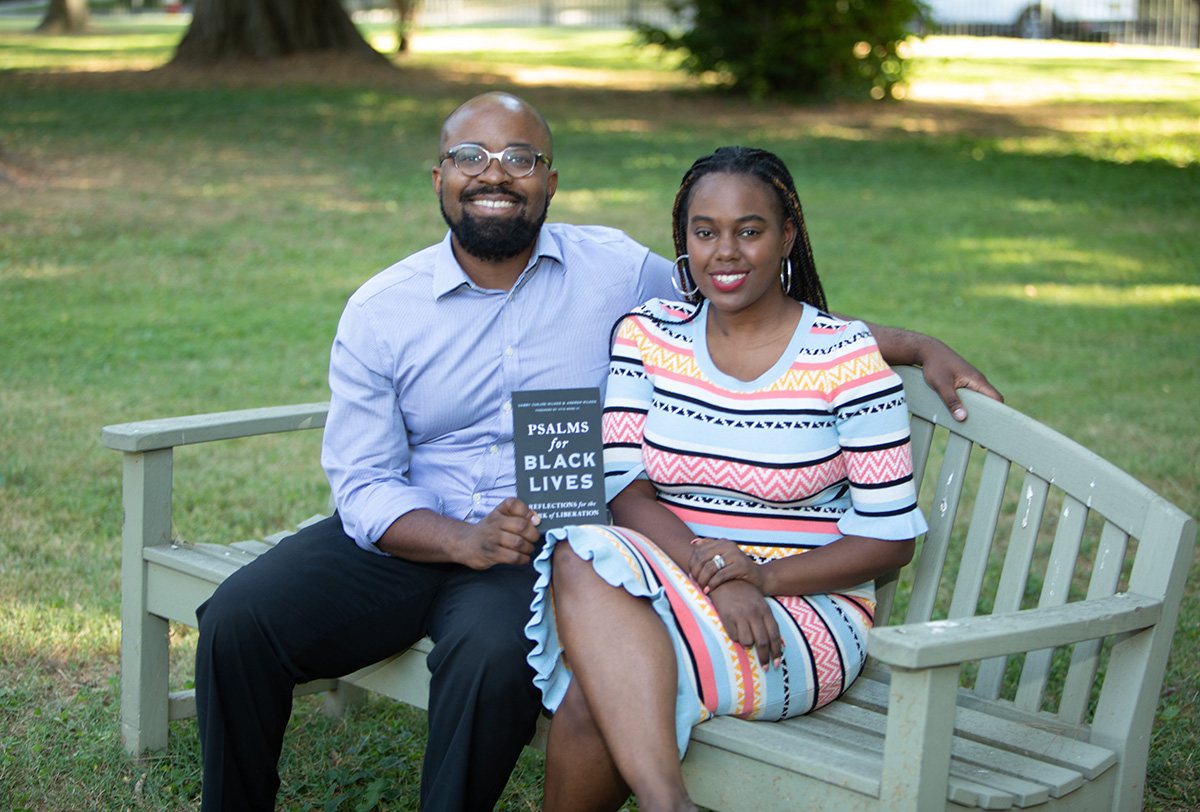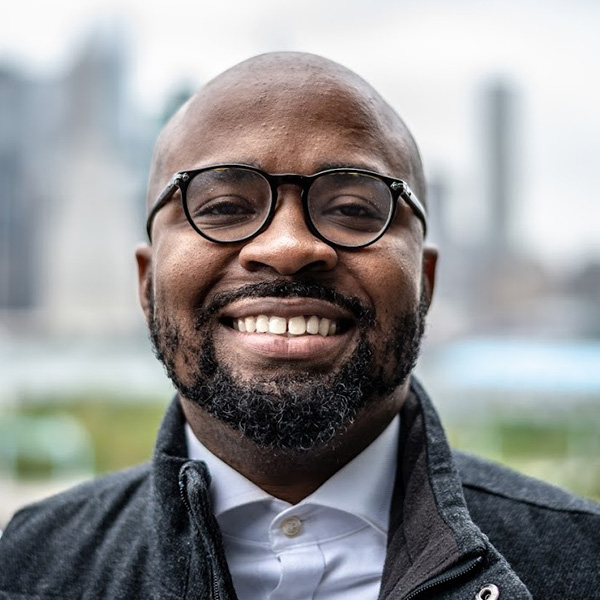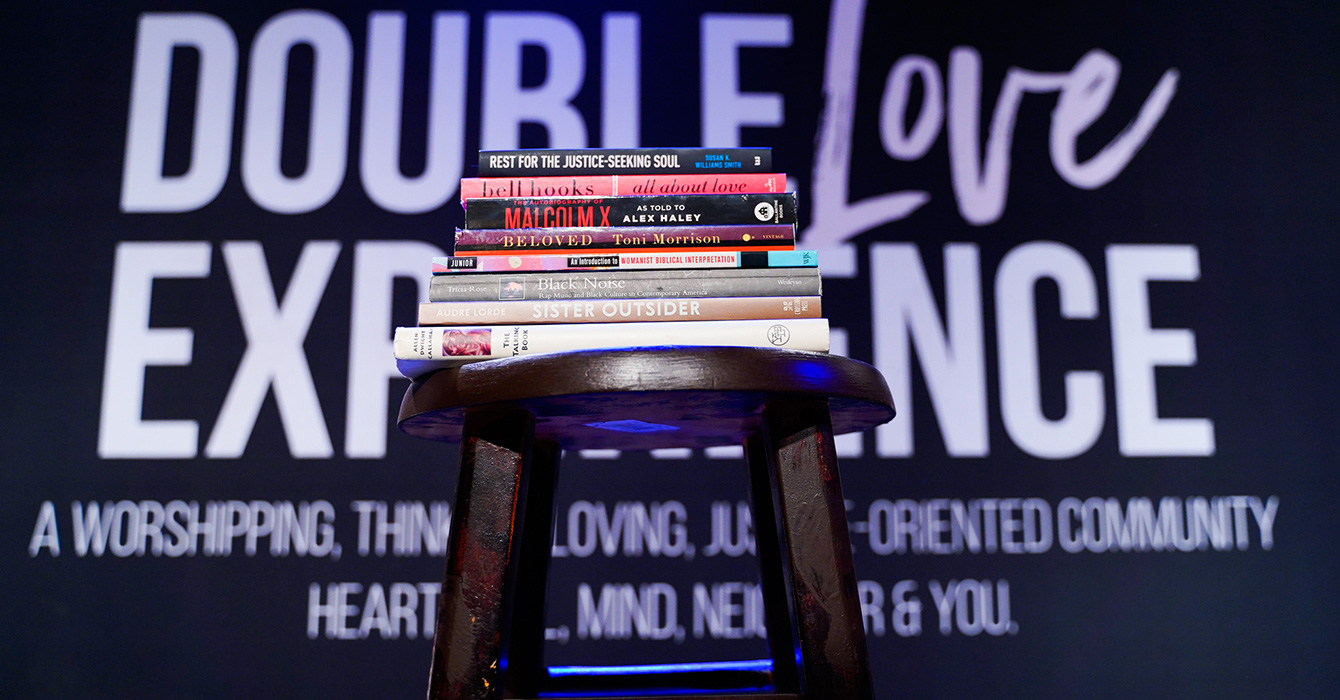Introduction
In the summer of 2020, America burned, often literally, with a passion for racial justice and righteous indignation over the murder of Black lives, among them George Floyd, Breonna Taylor, and Tony McDade. At the Double Love Experience Church, the church we founded and launched in Brooklyn, New York, we called for a churchwide fast. For eight days, we prayed together, took part in civic action together, and read Psalms together. These eight days led to six months of Wednesday prayer sessions where we read and reflected on the Psalms as a community. In beautiful ways, some expected, many unforeseen, God encouraged our hearts during a difficult moment in America, a land where democracy, after all these years, is still struggling to be born.

The Psalms are rediscovered with fresh eyes by every generation. They speak across differences in cultures, social contexts, and even centuries. The Psalms are beloved for their emotional rawness, their urge toward justice, and their blunt candor about the coarse edges of a life spent walking with God.
While composing devotionals about the Psalms for our Double Love congregation, we recognized that the spiritual and social concerns of our congregation were shared by many outside of our immediate community as well. People across the globe, especially those across the African diaspora, found themselves navigating dual pandemics, the global pandemic of COVID-19 and the domestic pandemic of Black bodies being killed in the streets by those sworn to protect them. People of faith around the world were in desperate need of spiritual resources to keep them going. We realized that the work we were doing at our church might be for an audience larger than just our congregation. People were struggling, and the Psalms were the perfect place to begin looking for help.
As we engaged with the Psalms, our research, our prayers, and our vocation reinforced our belief about the importance of the Psalms as a contemplative resource for those doing the holy, demanding work of pursuing justice, undoing structural racism, and building a society that truly values Black lives. We hope that after making your way through this devotional, you will be able to dream afresh about the possibilities of seeing justice come alive in our time. Whether you are reading this book with your congregation, your community, your class, or just your own thoughts, our prayer is that this work will help you develop a justice imagination that can speak a comprehensive, hands-on word of spirituality and social transformation into this racist, economically unequal, yet deeply hungry and hopeful moment.
A justice imagination is resistance at work. In a time period when folks laugh at us for believing justice is possible, those with a justice imagination find it within their hearts to imagine anyhow. That is our hope for you, that you might come away from this devotional with a desire to imagine a better world despite the pain of the moment. Despite the headlines, imagine anyhow. Despite the verdicts, imagine anyhow. We speak the power and possibility of a justice imagination over you and your family. You can dream afresh. All is not lost. There’s hope awaiting you.
As you build your justice imagination, we will highlight the ways that the Psalms speak to four different actions we undertake in the work of liberation. We celebrate together, we lament together, we envision together, and we are emboldened together.
The work of celebration is fundamental to fostering and embodying a justice imagination. Just as the book of Genesis records God pausing to declare that God’s creation was good each day, our work of redesigning systems of harm for more just outcomes deserves notice, applause, and affirmation. We invite you to pause and celebrate both large and small steps toward justice. Everything from staffing a table to registering voters to organizing a protest to helping to introduce legislation deserves celebration. All of it matters, all of it, in the spirit of the Psalms, is an occasion to celebrate the God of love and justice, whose holy presence makes the work of our hands possible.
Alongside celebration, the Psalms invite us to lament together. Lament is a recurring theme of the Psalms and a necessary dimension of spiritual and emotional health. Through lament, we grieve our losses, honor our feelings, and invite God into the messiness of our lives as they truly are rather than how we would prefer them to be. When Nehemiah mobilized his community to rebuild the shattered walls of Jerusalem, he began with lament. Tears and anguish for all the pain the people had endured marked the start of that great undertaking. Inspired by that example, let us make space for our tears and, in the process, make way for a justice imagination that can rebuild what is ruptured in our communities.
The Psalms also push us to envision the world in new ways. There are times when we need to visualize the ways God can work in our lives. If we aren’t careful, the wear and tear of striving for justice can keep us from seeing anything new. We need the grace of God to help us envision new possibilities in our lives. We need God to help us illuminate our own justice imagination. The Psalms call us to envision the world the way that God sees it. No more false binaries. No more fatalistic ways of being. We choose to envision great things. We choose to see what God sees.
The Psalms also embolden our faith. Life can be trying at times, but let us endeavor to be more bold. We have the right to bring our concerns boldly to the throne of grace. We have the right to boldly claim the promises of God, both for ourselves and for our people. We have the right to boldly ask God for what we need. We must boldly believe that change is possible!
For each of the psalms selected over the next thirty days, you’ll find not only a reflection about how the psalm connects to the work of liberation and justice that we are undertaking together, but also a devotional invitation that seeks to help you meditate further on the message and meaning behind the text. Furthermore, to help you sort out how each psalm speaks to the actions of celebration, lament, envisioning, and emboldening, we’ve included daily questions that you can use either as an individual or as a small group to push deeper and see how each psalm can truly connect with your work, your life, and your community.
You might need to revisit some of these psalms more than once before your justice imagination is ignited. Do not let that discourage you. Read each psalm, each reflection, and each devotional as many times as you must. Read them out of order if you need to. Take your time with each question. Let God speak to you and through you. Use this devotional as your guide for building and renewing your capacity to imagine.
We are at a critical juncture for Black people across the diaspora. It may yet become a turning point of our nation’s history. May we pause to encounter the Psalms as a sacred word for and to Black lives.
In faith, hope, and love,
Pastor Gabby and Pastor Andrew
Excerpted from “Psalms for Black Lives: Reflections for the Work of Liberation” (copyright © 2022) and used by permission of Upper Room Books. All rights reserved.
A justice imagination is resistance at work.














